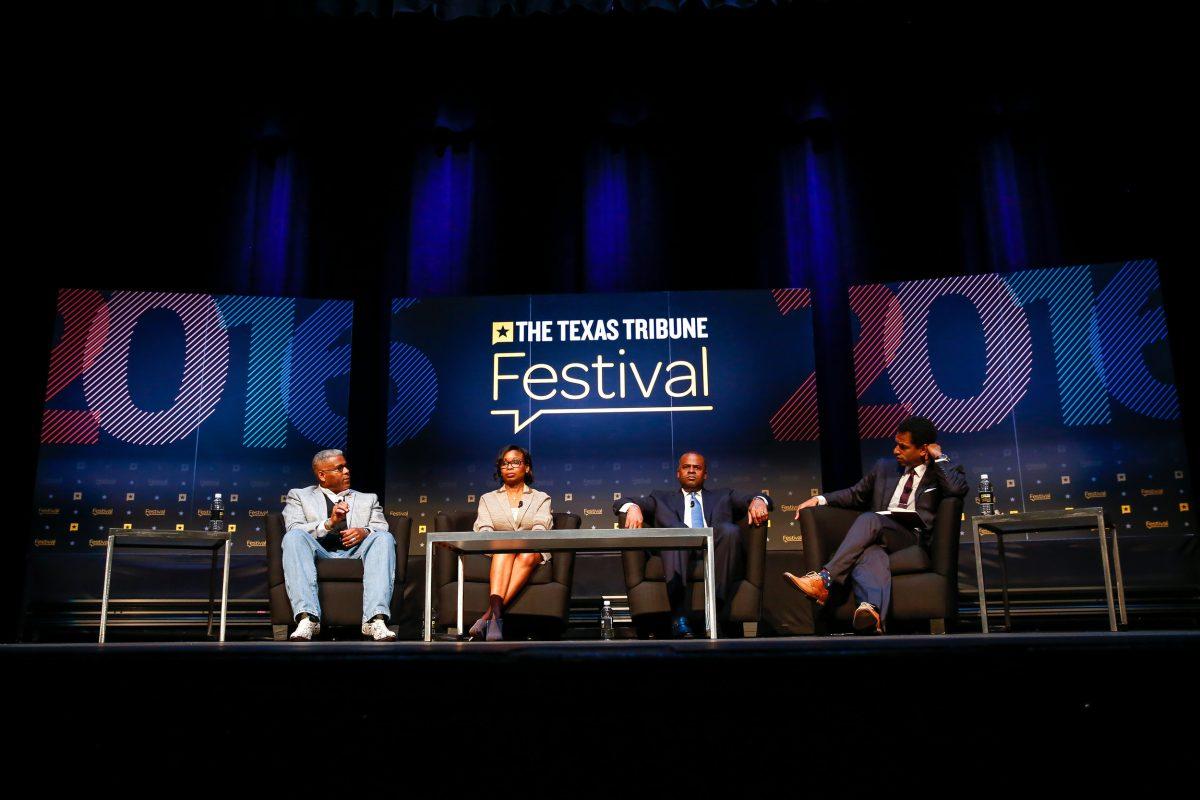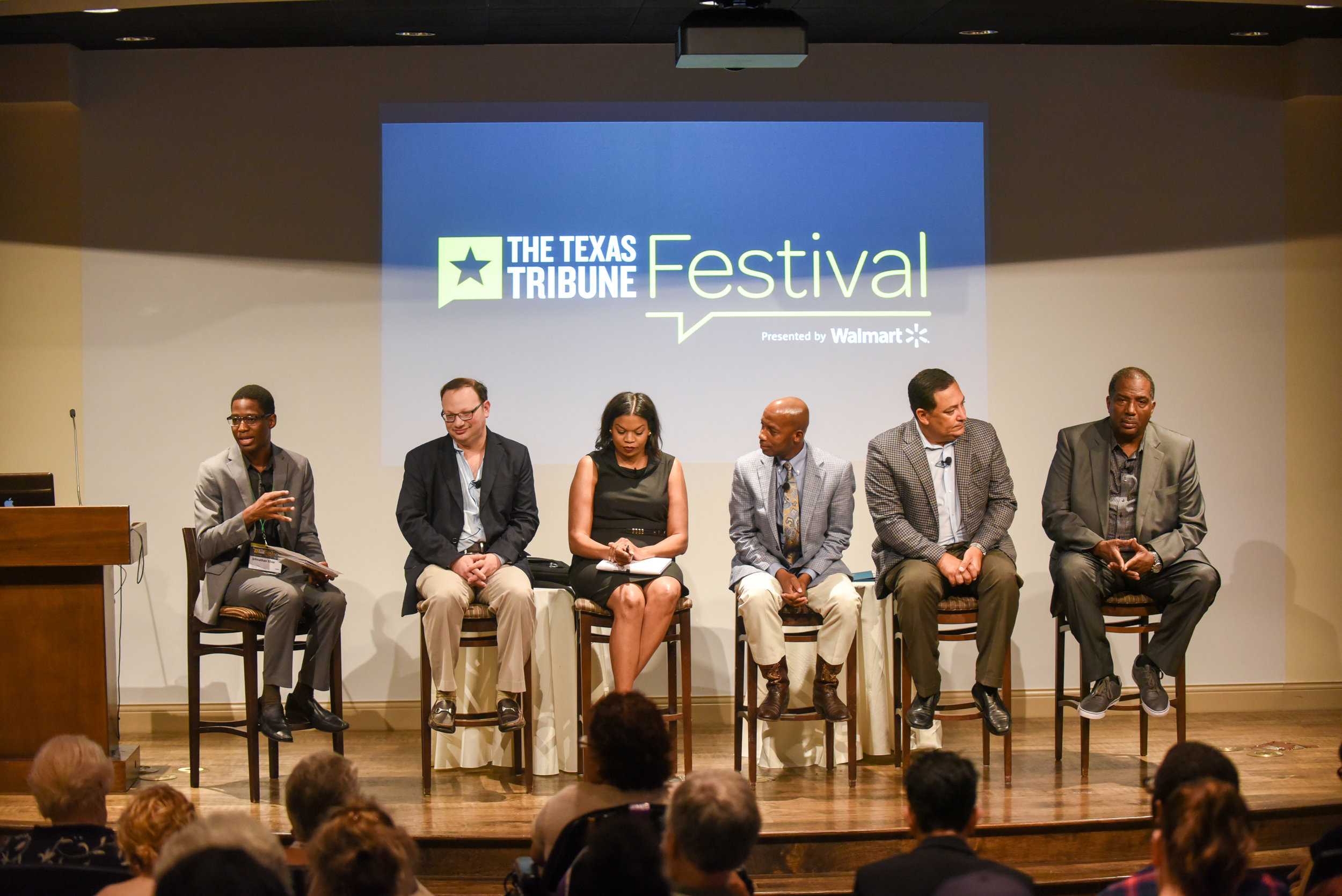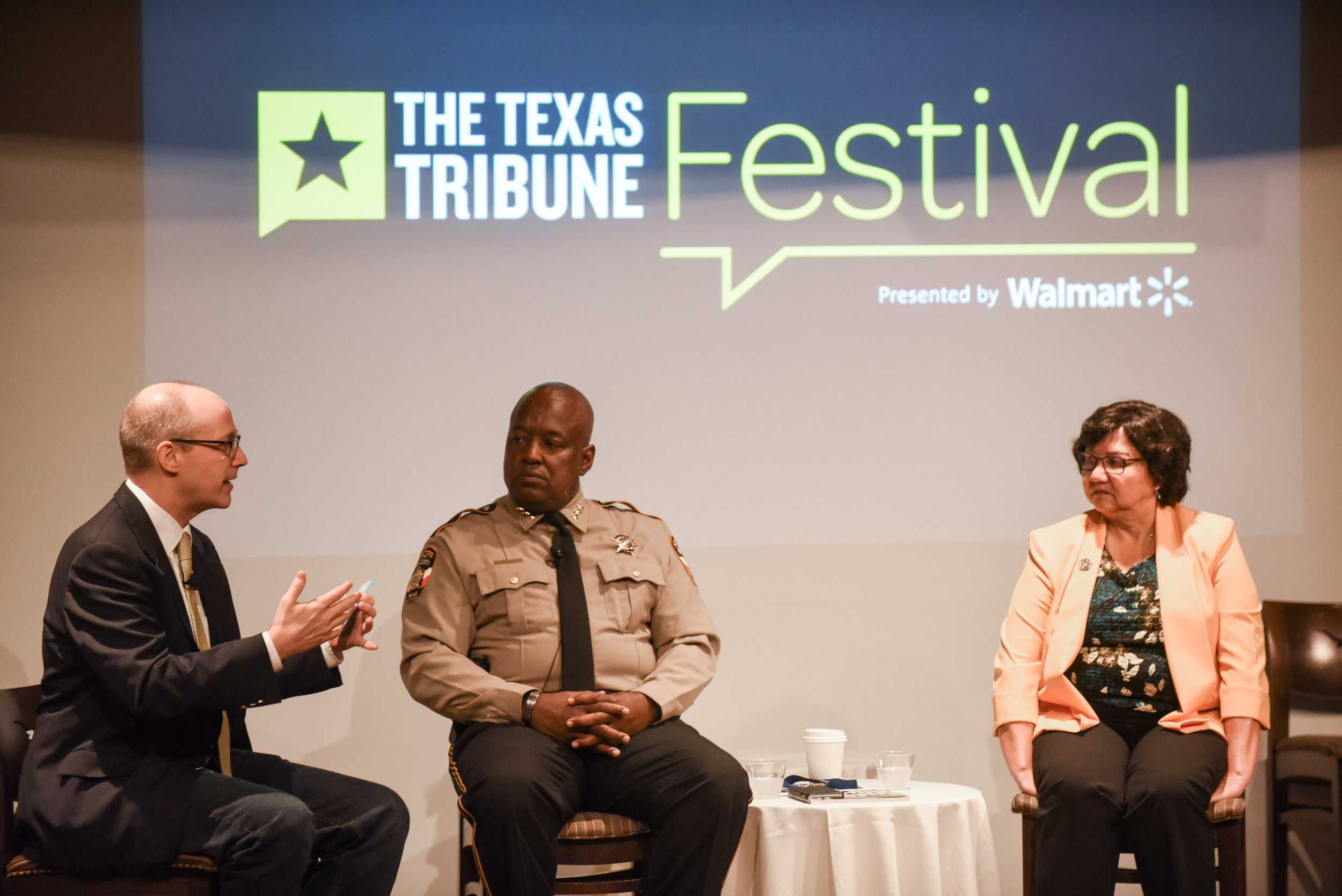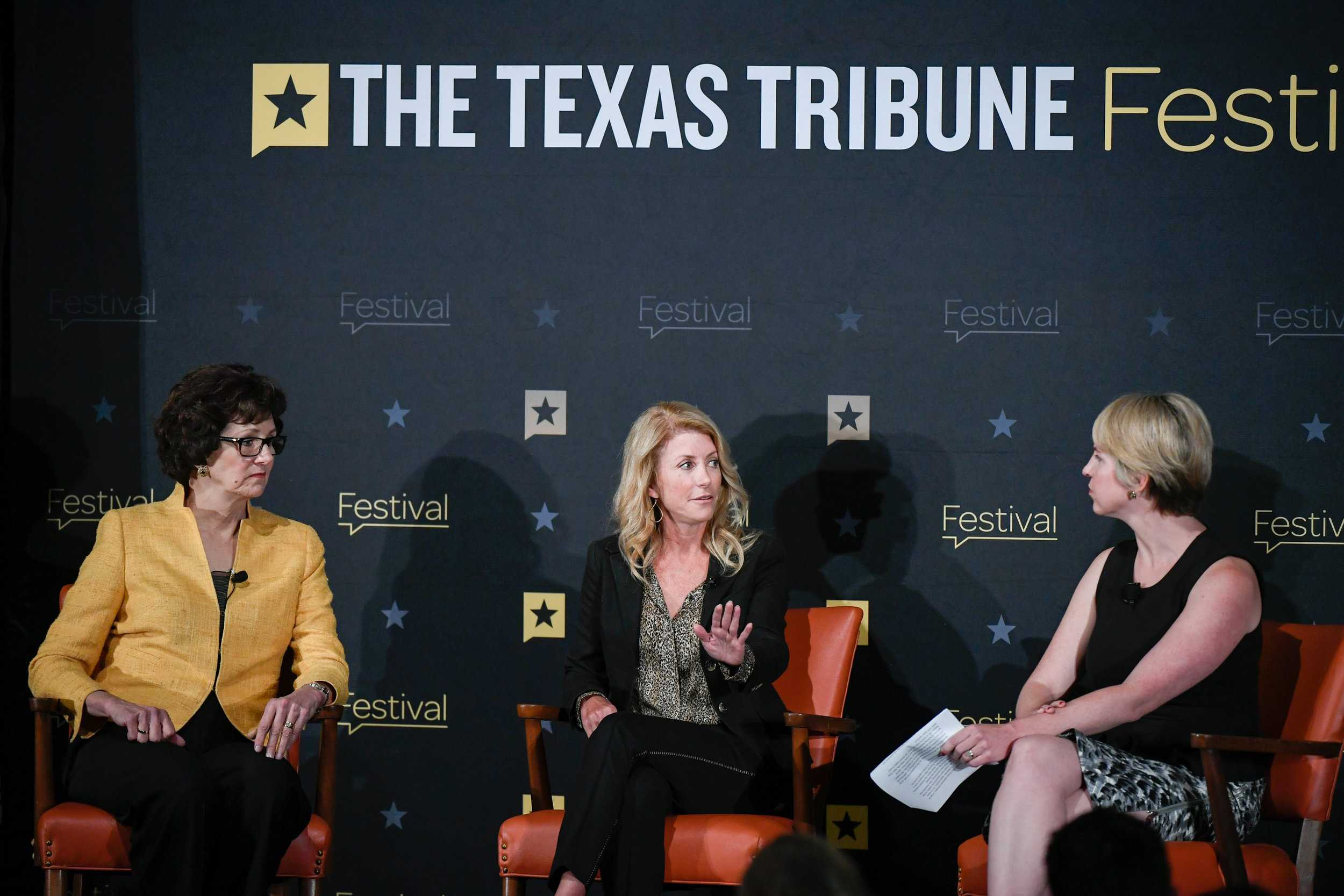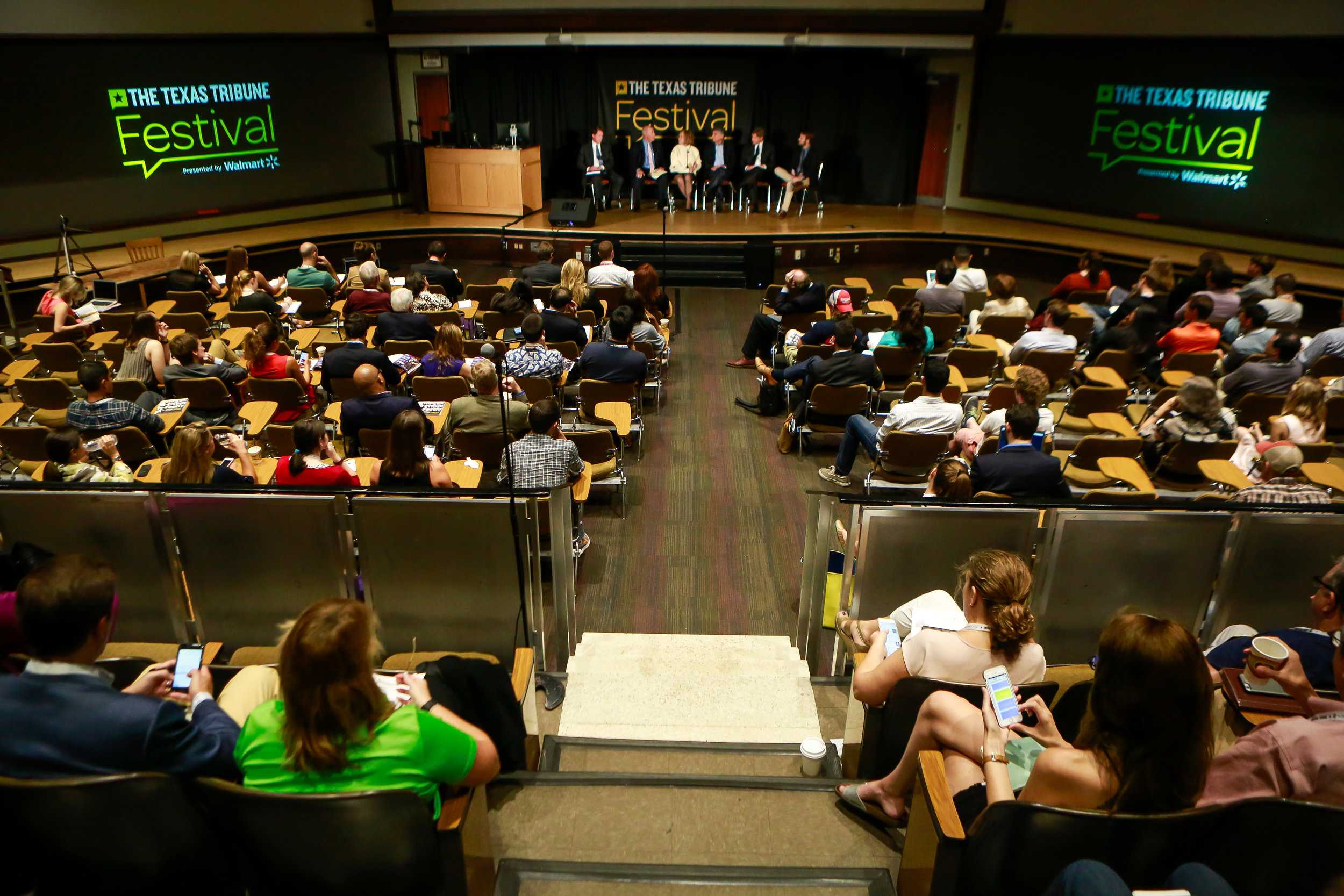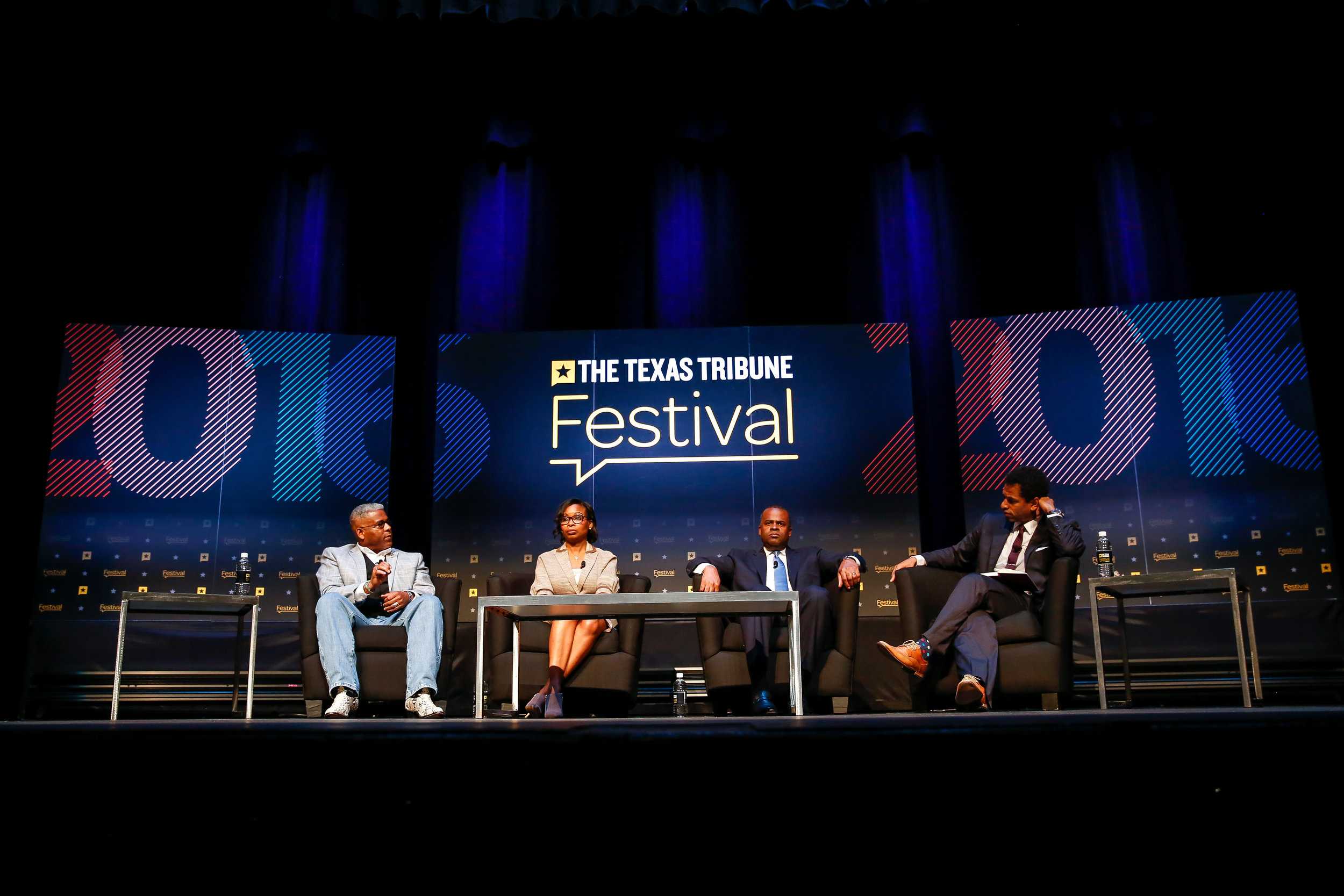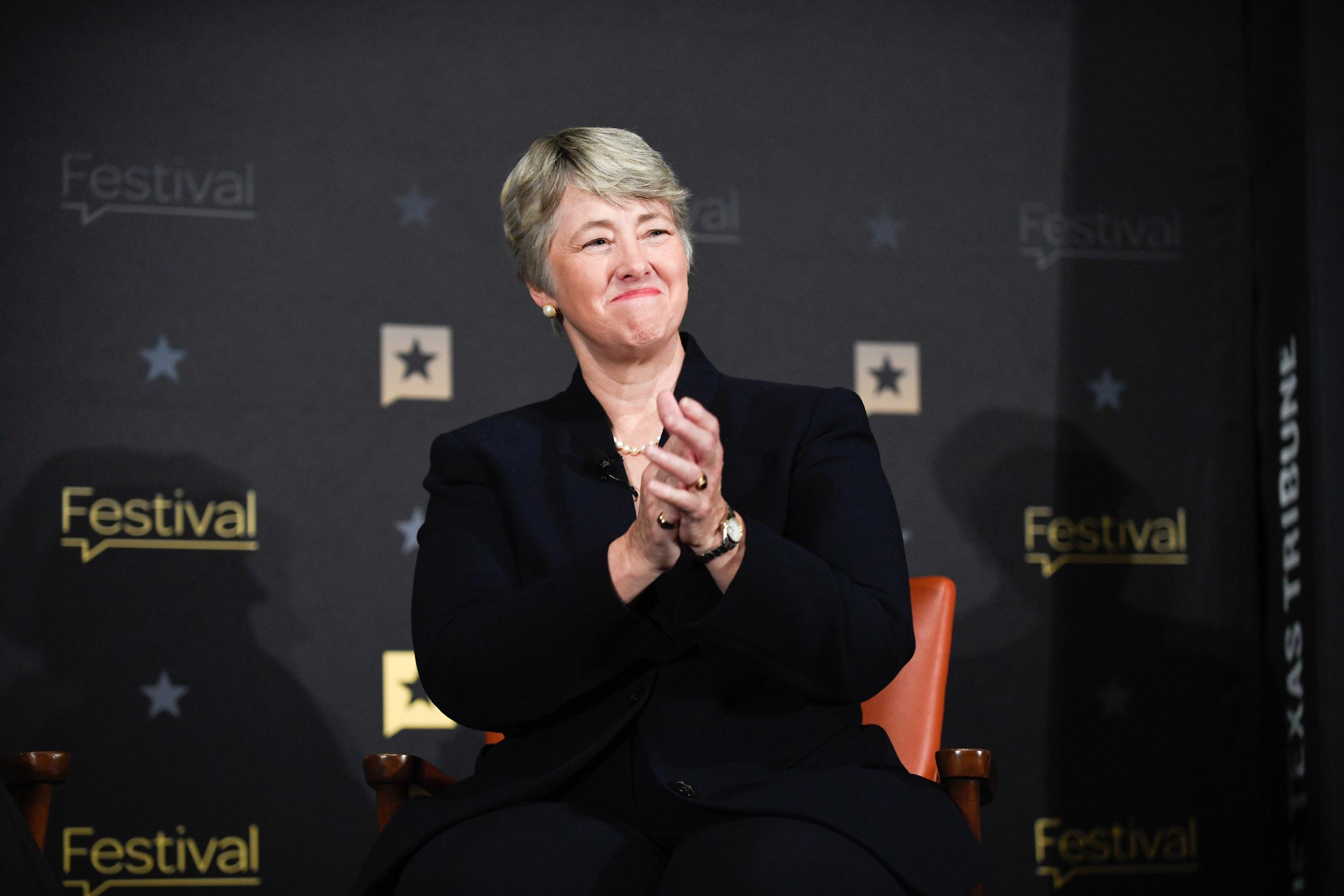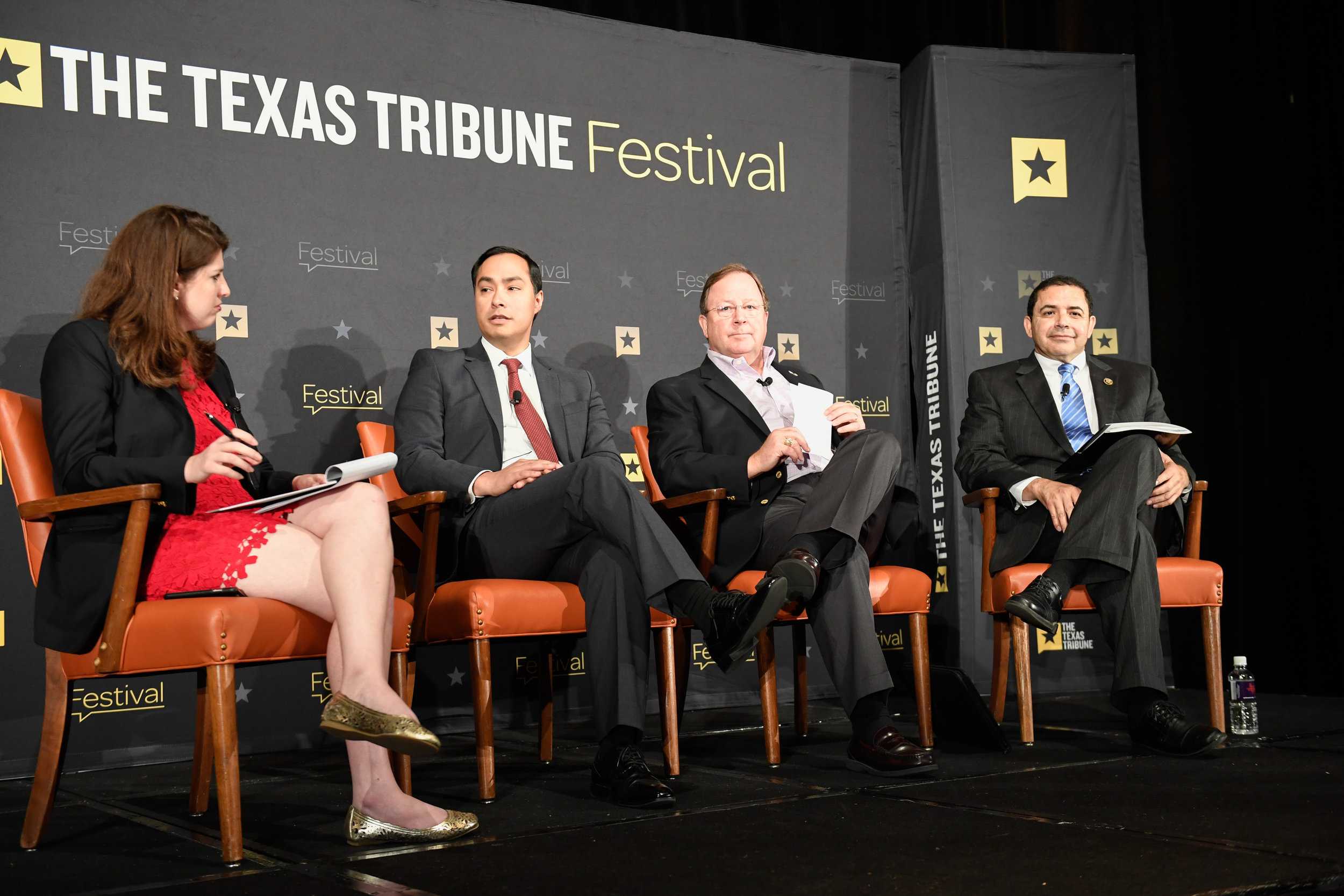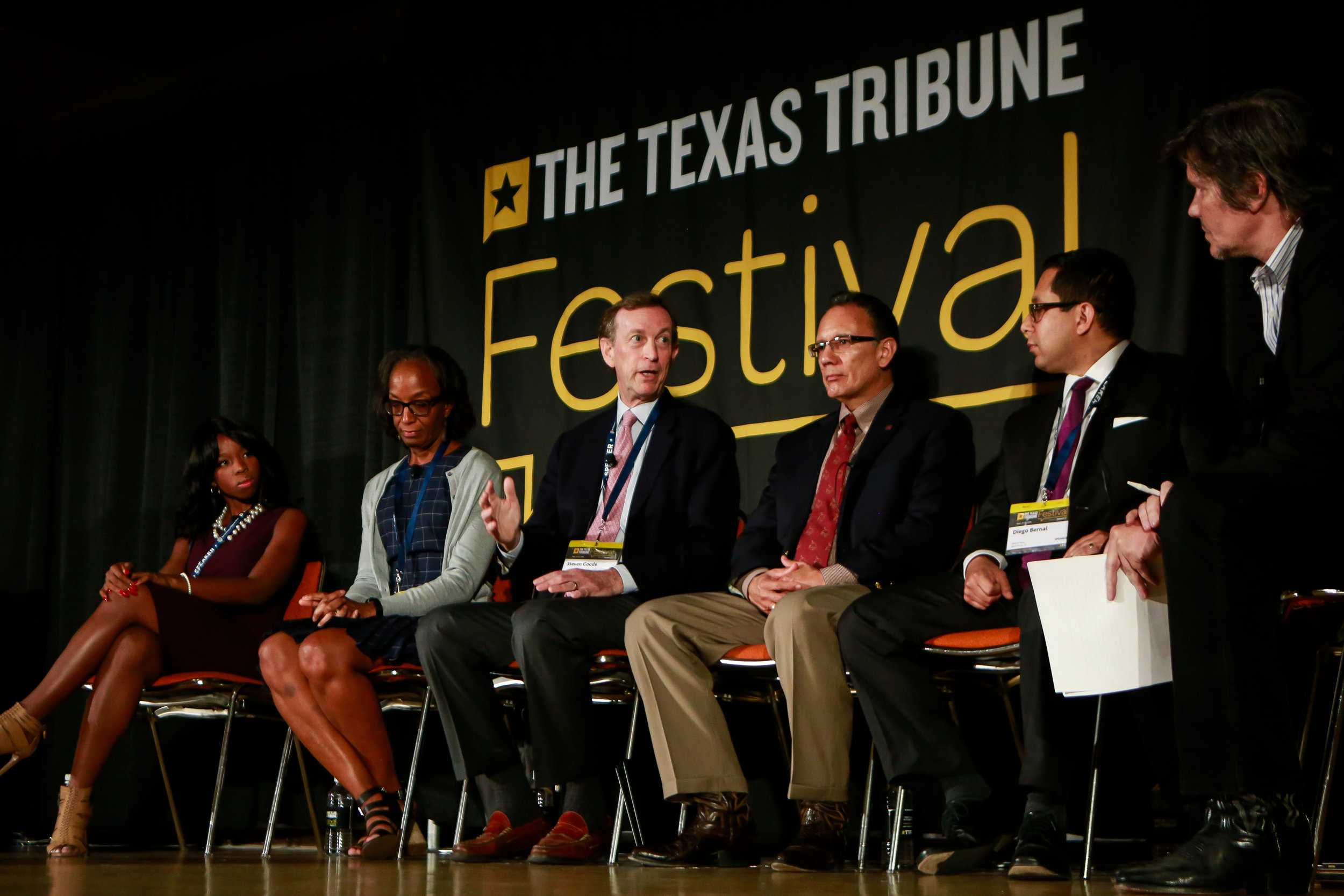From Friday, Sept. 23 to Sunday, Sept. 25, hundreds of speakers, students and professionals gathered at the University of Texas at Austin to attend the sixth annual Texas Tribune Festival.
Story by Mia Uhunmwuangho and Zoya Zia
Photos courtesy of The Texas Tribune
Evan Smith, CEO of The Texas Tribune, invited UT President Gregory Fenves to open the festival by sharing a few words. Fenves applauded the intellectual atmosphere and encouraged the audience to learn from panelists.
ORANGE was able to speak to several figures including Sen. Ted Cruz, Dem. Wendy Davis and APD Chief Art Acevedo. Here is a recap of the events ORANGE attended at the festival.
One-on-One with John Kasich
Governor of Ohio John Kasich kicked off the festival by addressing the election, his concerns with the country, and optimism for the future.
Kasich has over 40 years of experience in public service and was a 2016 Republican presidential candidate. When asked whether he felt comfortable with Trump, he succinctly replied “no.”
He maintained his disdain for Trump and referenced a speech he gave in April called “Two Paths.” According to him, there are no simple solutions to complex problems and any solution should offer opportunities to Americans.
Kasich argued against deporting undocumented immigrants and went further to defend immigration as a “good thing for the country.” He also spoke out against religious tests and gerrymandering. Still, he refused to back Democratic Nominee Hillary Clinton because of her top-down approach to government.
In the aftermath of the police shootings in Tulsa and Charlotte, Kasich stressed the importance of communication in criminal justice reform. Rather than waiting on politicians to create change, he encouraged the audience to live at a “higher place” by caring for others and doing something bigger than themselves.
Race and Law Enforcement
Chief of Austin Police Department Art Acevedo, Director of the Center for Effective Justice and Right on Crime at the Texas Public Policy Foundation Marc Levin, Policy Director for the Texas Criminal Justice Coalition Shakira Pumphrey, Sen. Royce West, and Sen. James White started of the Diversity and the Law tract at the Texas Tribune Festival with a panel on race and law enforcement.
Sen. West opened the conversation by stating that the issue of police brutality is not a new one, but one that has been occurring for hundreds of years. Members on the panel agreed with this sentiment, but cited different sources of data to interpret the problem. Sen. White cited a Harvard study, which concluded that racial bias was not present in police shootings, only in situations such as stop and frisk. Sen. Royce countered that argument by citing a Huffington Post study, which did find an apparent racial bias.
Chief Acevedo directed the discussion away from data and cited the work that APD has been doing to curb police violence and rebuild trust within Austin’s community. When moderator Jonathan Silver brought up the case of David Joseph, a naked, unarmed 17-year-old who was shot by APD officers in February of last year, Acevedo purposely referred to Joseph as a “17-year-old-man,” and said that the officer involved in the shooting was promptly fired.
ORANGE co-editor-in-chief Mia Uhunmwungho asked Chief Acevedo about the current state of policing and whether or not there is a systemic problem, Acevedo said “The system isn’t broken, it’s imperfect. We have a leadership problem because we tolerate mediocrity.”
The panel ended with Silver asking each panelist whether they believe black lives matter. Sen. West, Pumphrey, and Acevedo promptly responded with a yes, Sen. White responded with “All lives matter, therefore black lives matter.” Levin agreed with Sen. White’s statement.
Immigration and the Cities
Travis County Sheriff Greg Hamilton and Dallas County Sheriff Lupe Valdez provided their perspectives on the relationship between law enforcement and undocumented immigrants.
Hamilton became sheriff in 2005 and is currently on his third term. Valdez is the only Hispanic female sheriff in the country and has decades of experience in law enforcement. Both agreed that the government agency Immigration and Customs Enforcement (ICE) has a role to play in vetting individuals who have committed heinous crimes and could be dangerous.
Valdez says she is primarily interested in arresting dangerous individuals. She points out that though the majority of undocumented immigrants came to the United States for a better quality of life, any criminal should be held accountable.
Is Texas Good for Women?
Sen. Wendy Davis and former Texas Comptroller Susan Combs sat down with Texas Tribune Editor-in-Chief Emily Ramshaw to discuss the state of women in Texas. Davis and Combs opened the panel by sharing their experiences as women who grew up in Texas. “Growing up as women in Texas, you grow up tough,” Davis said. “You have to scramble to make sure your voice is heard.”
The conversation then transitioned into how Texas is failing women. Both Davis and Combs cited inaccessibility to healthcare, the wage gap, the rising costs of childcare, and the lack of female involvement in politics as just a few things that make Texas unwelcoming for women. “I didn’t take certain jobs because I knew I couldn’t afford child care,” Combs said. The crowd applauded when Davis stated her opinions on equal pay: “It doesn’t make sense that equal pay is divided on party lines. Both parties need to make sure there’s a remedy if a woman discovers she isn’t getting paid unequally.”
However, Combs and Davis disagreed on the underlying issues that prevented women from running for office. “I think the issue is more individual than systemic,” Combs said. “When I was running for office, no one told me I couldn’t do it.” Wendy cited the rough experiences she had while running for governor, and told ORANGE that the problem of women not running for office is systemic. “Texas has a responsibility to its women,” Davis said.
Paying for Higher Education
Former State Representative Dan Branch, President Gregory Fenves, State Rep.Helen Giddings, State Senator Kel Seliger, and Chancellor of the Texas Tech University System Robert Duncan panelled a discussion on the affordability of higher education. All of the panelists cited the 2003 decision to deregulate higher education as a factor in tuition rates.
President Fenves says he holds the university, the state, and students and their families responsible for paying tuition. He mentioned that this year’s tuition increase comes after five years without an increase. Chancellor Duncan added that while the balance is shifting, public universities in Texas must remain competitive.
Sen. Seliger and Rep. Giddings agreed that nobody questions the value of higher education. As advocates for colleges and universities, they emphasize accessibility and affordability.
Rep. Giddings said she finds a correlation between state funding and tuition. She said that either the state commits to funding or tuition goes up, grants are not always enough to assist students. According to Sen. Seliger, there may “always be someone who cannot afford college.” The goal is to maximize the number of students who do attend.
Former State Rep.Branch said that higher education can be squeezed between public education and healthcare in the state budget. Despite this reality, he argued that public rates in Texas remain below the national average.
Although more work needs to be done to improve affordability, President Fenves says half of undergraduate students leave UT without debt, and the average loan is $27,000. The four-year graduation rate and freshmen persistence rate are increasing at UT.
Ultimately, President Fenves says he believes more and more students and families are making “rational decisions” by investing in higher education.
The State of Black America
Mayor of Atlanta Kasim Reed, Mayor of San Antonio Ivy Taylor and Executive Director of the National Center for Policy Analysis Allen West sat down with moderator Touré to discuss the current state of black America. The conversation immediately jumped to the question of policy brutality as Touré brought up the recent shootings in Tulsa and Charlotte. Taylor said that the black lives matter movement is more than a trending political issue, and requires more nuanced conversation.
All parties agreed that media coverage of recent events was problematic, and West drew a negative reaction from the audience and the commentator when he said that he doesn’t believe that protesters should be violent, or hurting their communities. When the moderator further questioned West on whether he thought that the burning of property was more important than black bodies dying, West said that he’d rather be seeing people organizing in Chicago, alluding to the issue of black-on-black on crime.
Sticking with the issue of media coverage, Touré asked the panelists how they each felt about Colin Kaepernick’s recent protests. Taylor and Reed did not say dive into their personal opinions on the matter, but they generally agreed that it’s Kaepernick’s right to protest how he sees fit. West disagreed on the matter, saying that he doesn’t understand what Kaepernick finds so offensive about the flag or the national anthem. West’s statements drew a negative reaction from the audience, and also from Touré, who repeatedly corrected West on his mispronunciation of Kaepernick’s name.
Tensions continued to run high as the conversation shifted towards the looming election. Although Mayor Taylor and Mayor Reed did not explicitly state who they would be voting for, they warned the audience about the dangerous effects a Trump presidency. West did not say who he would be voting for either, but did say that 65 percent of him was leaning towards casting his vote for Trump. When asked how Trump would be good for black Americans, West did not directly answer the question. However, he did note that he felt as though the GOP gave up on black people. The question “what is the current state of black America” was never answered.
The LGBTQ Agenda
MTV News Senior Political Correspondent Ana Marie Cox held a one-on-one session with Annise Parker, the first openly-lesbian mayor of Houston. The session opened with Cox asking the former mayor about her thoughts on the LGBTQ movement. “I think we are far beyond where I thought we’d be,” Parker said. “I did not expect to have equal marriage in my lifetime.”
The conversation transitioned as Cox brought up Houston’s “bathroom bill.” Parker expressed her dismay at the repeal of the bill, saying that bill was also a personal battle for her. “I don’t think the right to use the bathroom should’ve have even been up for a vote,” Parker said.
The “bathroom bill” conversation led to the issue of transgender rights and violence toward transgender people, particularly transgender people of color. “It seems like trans and queer people are being pushed to the front of the movement,” Cox said. Parker agreed saying that “as the L [lesbian] and G [gay] become more integrated into society, trans visibility is inevitable.”
Parker did not offer many words on the issue of trans violence in Houston. Although she did say that trans people should be able have to a space to share their grievances, the conversation became about police violence. Parker talked about how she improved community-police relations in Houston, and the importance of knowing how to act properly when one is interacting with police.
What’s the Matter with Congress?
U.S. State Representative Henry Cuellar, U.S. State Representative Bill Flores, and U.S. State Representative Joaquin Castro worked together to identify the sources of conflict and dysfunction in Congress.
Rep. Cuellar began by describing his weekly routine. He works early days and long hours but in the end, “legislation does not move.” Gridlock cripples the system and prevents legislators from doing their job. Rep. Flores noted that both parties are guilty of being overly-partisan and blocking productivity.
Rep. Castro continued the conversation by mentioning that the last few legislative sessions were among the least productive in American history. Individuals are busy all day but the body as a whole does not accomplished much. Gerrymandering perpetuates this state of polarization.
Rep. Cuellar and Rep. Castro are both Democrats, while Congressman Flores is a Republican. In addition to their Texas roots, they share a disappointment in polarization.
Rep. Cuellar pointed out how members are disciplined to vote in line with the party. Divisions prevent politicians from working together to serve the people. Rep. Flores added that many politicians search for perfection, which is impossible.
None of the panelists shied away from criticizing their own political party. They agreed that polarization is an issue manifested by partisan mindsets present on both sides of the spectrum.
Campus Carry is the Law. Now What?
Chief of Texas State University Police Department Jose Banales, State Rep. Diego Bernal, UT Associate Professor of English Mia Carter, Chairman of Campus Carry Working Group at UT Steven Goode, Southwest Regional Director of Students for Concealed Carry Antonia Okafor joined moderator David Brown to discuss the future of campus carry. Brown began the panel by asking each of the panelist what, if anything, had changed since the implementation of the law in August.
Banales said that one main change is that campus officers may have to be trained in how to diffuse situations where the person involved is licensed to carry, while Carter expressed that there still a large amount of uncertainty, particularly when it comes to safety in the classroom. Carter said that she has not been threatened in the classroom, but someone did leave a pile of bullets in her office with a strange message.
All the panelists agreed that media coverage played a huge role in the perception of the bill. Goode said that the media often used open carry and concealed carry interchangeably, although the two bills are different. Okafor said that the media portrayal opened the door for discussions that were larger than Texas, and the other states may now consider implementing a similar bill.
One thing has not changed is the level of uncertainty that many students and faculty still feel in relation to the bill. Okafor said that the main reason why she supports the bill is because it makes her feel safe, while Carter said the bill makes students and faculty feel unsafe. Carter said that the bill would have a chilling effect, meaning that professors or student may censor themselves in the classroom for fear of being shot. Goode pointed out that there have already been incidents where licensed gun holders have accidentally fired their guns in the classroom.
The conversation continued to circle back to the issue of safety. Okafor said campus makes her and other women safer, particularly in the event of a sexual assault. Goode said that, according to his research, there is no evidence that shows campus carry makes colleges safer. When ORANGE asked the panel about how men of color could be adversely affected by campus carry, Okafor said she would still encourage them to exercise their second amendment right to arm themselves. However, Carter disagreed. “A white man’s second amendment right is different from a black man’s second amendment right,” Carter said.































